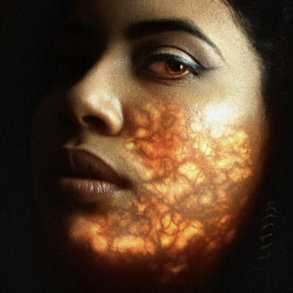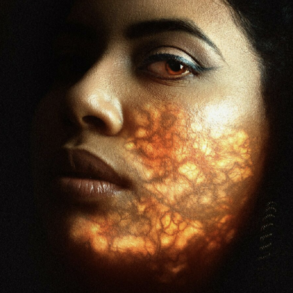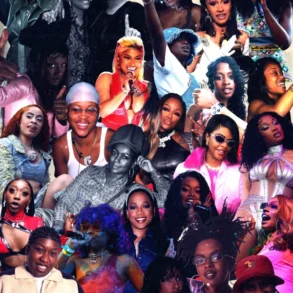
British hip-hop has exploded from the underground over the last decade.
In 2022 the genre claimed a record share, 12.4%, of the U.K. album market—the third-largest behind rock and pop and more than triple its 2015 percentage—according to BPI stats.
This year, Dave and Central Cee’s “Sprinter” (Neighbourhood/Live Yours) became the longest-running #1 rap record in the U.K., remaining at the top of the Official Singles Chart for 10 weeks.
In 2015 the BRIT Awards failed to nominate a single Black artist in any of its top categories. Since then, Dave, Aitch, Little Simz, J Hus and Stormzy, representing a variety of British hip-hop subgenres, have been recognized with the BRITs’ highest honors.
Central Cee built an impressive career independently, then signed to Columbia (as part of a JV with Sony Music U.K.) in June, suggesting British hip-hop’s ability to translate outside the U.K., which can also be inferred from collaborations among Giggs, J Hus & Drake and Skepta & A$AP Rocky, as well as Little Simz’s 10-date 2023 U.S. tour.
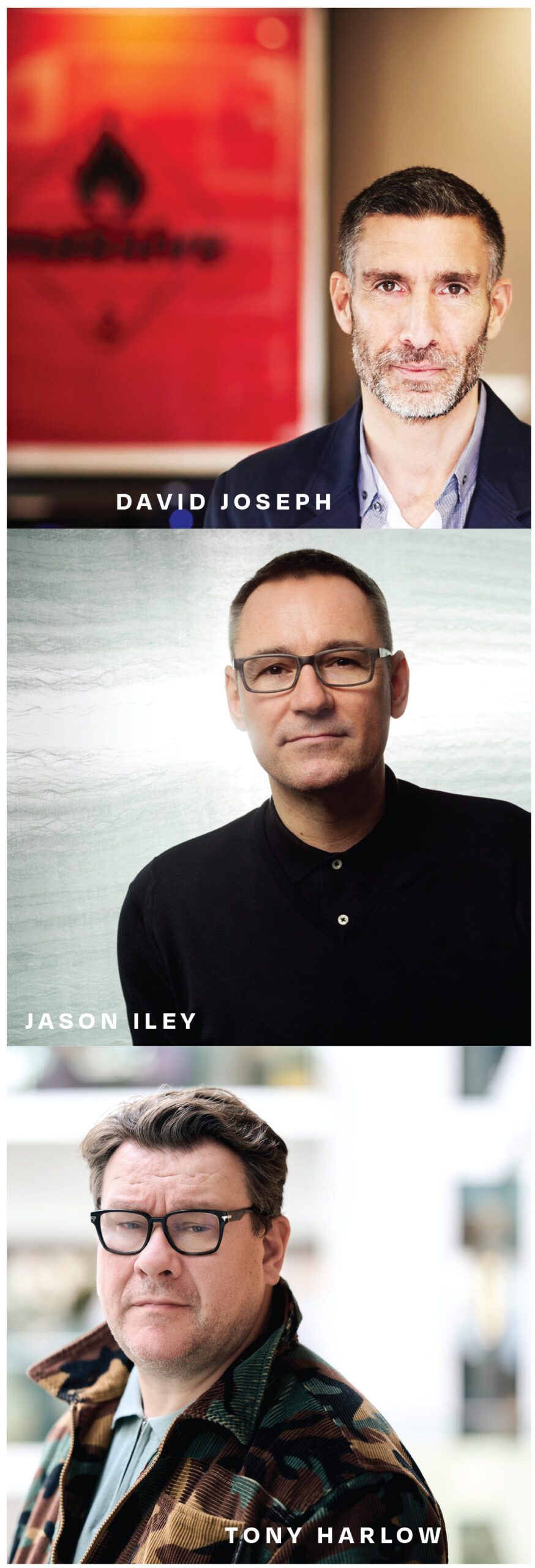 As David Joseph, chairman and CEO of UMG U.K., puts it, “For years, nobody thought British hip-hop could travel. Streaming has undoubtedly helped artists find new audiences; it’s proven there’s an audience out there, beyond the U.K., for the genre.”
As David Joseph, chairman and CEO of UMG U.K., puts it, “For years, nobody thought British hip-hop could travel. Streaming has undoubtedly helped artists find new audiences; it’s proven there’s an audience out there, beyond the U.K., for the genre.”
Joseph points to Stormzy’s 2019 headlining set at Glastonbury (“artistry at its greatest”) and his “epic” All Points East show in August as examples of the label’s wins in the British hip-hop space. D-Block Europe, whose latest album, DBE World, was distributed by Virgin Music Group partner EGA, made music history earlier this year by becoming the British rap act with the most Top 10 albums to their credit—seven—“a remarkable achievement.”
At Sony Music U.K., Chairman and CEO Jason Iley notes that J Hus scored his second U.K. #1 album in July with Beautiful and Brutal Yard (Black Butter). Iley calls the London artist “a leading pioneer of the U.K. rap scene,” who “continues to evolve and push the boundaries with his genre-defining music.”
Trailblazing drill rapper Headie One is another standout, having broken into the mainstream under the stewardship of Relentless Records. After hitting #1 in 2020 with his debut album, Edna, he reached #4 in September courtesy of the mixtape Strength to Strength, a collaboration with K-Trap. These triumphs underscore the foothold Sony Music has in the independent arena, with The Orchard handling Skepta, Giggs and Aitch, AWAL advancing the work of Little Simz and Human Re Sources’ guiding the career of Lancey Foux.
Rapper Nines, meanwhile, is Warner Music U.K.’s flagship hip-hop artist―he hit #2 twice this year, with fourth album Crop Circle 2 (released in April) and follow-up Crop Circle 3 (October). Says CEO Tony Harlow of the former, “Not only was the project an unquestionable U.K. hip-hop classic, but Nines is one of the most exceptional storytellers of his generation.” The LP was accompanied by a 45-minute narrative film that begins with tumultuous goings-on in the gritty environs of North West London, which Nines calls home. The film boasts cameos by some of the artists featured on Crop Circle 2, including labelmates Kojey Radical and Ghetts.
Despite all this success, however, the genre may not yet be on stable ground. Iley hazards that while 2023 marks the 50th anniversary of hip-hop in the U.S. and though the U.K. has maintained some hip-hop presence since the late 1980s, it’s taken a while for the U.K. scene to find its voice (with 2015 considered a watershed year). Per the BPI data cited above, the still-nascent genre is approaching the same commercial footing as pop, and, says EGA Chairman and President Colin Batsa, “In every cycle, when that happens, the quality of the music has to go to the next level. It’s doing great globally―best we’ve ever had―but internally and at the grassroots level, it’s suffering. It’s lost its essence. There needs to be a bunch of new kids who come along and excite us again.”
DJ Semtex, director of Artist Development at Sony Music U.K., echoes Batsa in calling for more artist development. “The industry has gotten lazy chasing TikTok hits,” he says. “We should be working with artists from the beginning and helping them develop, identifying the right people to work with and taking our time with it, not just looking for the quick hit. We need to provide space to let the next wave of creators come through.”
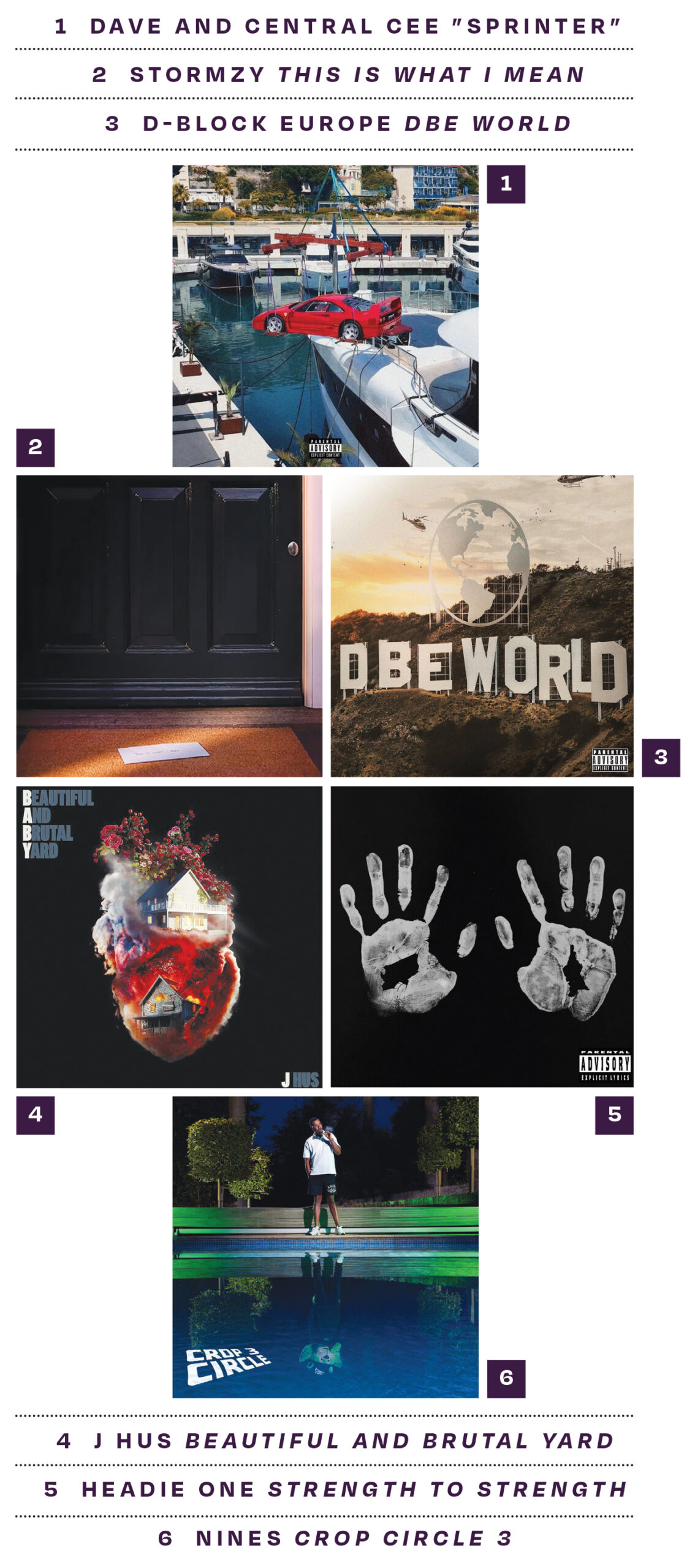 Nonetheless, as Atlantic U.K. EVP/President of Black Music Austin Daboh contends, “Hip-hop sheds its skin every three to five years. The industry is always quick to write it off when it’s going through a shedding period. But that’s what it’s doing; it’s not going anywhere.” Dion “Sincere” Lizzy, who recently joined the label as senior A&R director, likewise says, “I see rappers who are not streaming well but can sell a thousand tickets in five minutes. There are 10 to 15 artists nobody’s heard of yet coming through. In two or three years, they’re going to be headlining festivals―and they will be doing millions and millions of streams.” Semtex, for his part, is betting on female acts to lead the next wave of hip-hop talent.
Nonetheless, as Atlantic U.K. EVP/President of Black Music Austin Daboh contends, “Hip-hop sheds its skin every three to five years. The industry is always quick to write it off when it’s going through a shedding period. But that’s what it’s doing; it’s not going anywhere.” Dion “Sincere” Lizzy, who recently joined the label as senior A&R director, likewise says, “I see rappers who are not streaming well but can sell a thousand tickets in five minutes. There are 10 to 15 artists nobody’s heard of yet coming through. In two or three years, they’re going to be headlining festivals―and they will be doing millions and millions of streams.” Semtex, for his part, is betting on female acts to lead the next wave of hip-hop talent.
To preserve and strengthen the position of British hip-hop, the major-label CEOs collectively posit export strategy, a truly global superstar and flexibility in deal terms for a genre that’s prospered on independence.
“Export strategy has to be front and center of every artist campaign,” Joseph confirms. “We have to look more broadly. The opportunities in some of these markets are endless, and that’s very exciting.” Adds Iley, “It would be great to see relationship-building between U.S. artists and the U.K. continue—to generate greater cultural ties and to see more international collaborative moments such as “Praise the Lord” by Skepta and A$AP Rocky.”
Harlow, for one, is bent on finding “that next global breakthrough in British Black music,” elaborating, “We’ve seen our music grow steadily in many markets, but an absolute breakthrough superstar would kick down walls for everyone in this space.”
“Choice of deals is something in particular we must support,” Joseph ventures, “It makes for a strong and competitive industry, which drives brilliance. We always want to work with the best artists, so it’s the job of our teams to show the value we bring in this area as in any other.”
Harlow has the final word, asserting, “The culture is entrepreneurial and independent, and this insight should be reflected not only in the deals we make with artists but the executives we hire and the strategy we create for the business across the board. New independent music always has lessons to teach, and we are more than open to learning.”
This post was originally published on this site be sure to check out more of their content.





